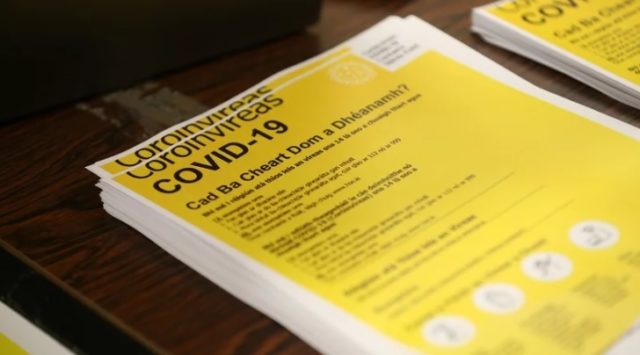New research has revealed that over half 51% of people were ‘worried’ about visiting their GP during lockdown, while 49% were worried about visiting a hospital.
The research, commissioned by Pfizer Ireland, is part of theeir 2020 Health and Science Index, which is a nationally representative sample of 1,050 adults – carried out by Behaviour and Attitudes Research company.
Fieldwork for the research was completed between June 23 and July 8, with all interviews conducted online.
It also showed that 32% of people in Ireland claim that pandemic related lockdown and restrictions had a negative impact on their health.
This was highest among those with a medical condition at 39% and among 25-34-year olds at 43%.
The new research reveals the impact of the restrictions on healthcare during the last number of months.
Of those who state they were impacted the main reasons cited were: lack of access to a doctor (46%), treatment delays (28%), lack of access to diagnostics or tests (25%) and diagnosis delays (16%).
Commenting on the research, Paul Reid, Managing Director, Pfizer Healthcare Ireland said: “One of the worrying aspects of the pandemic has been the impact on non-COVID related healthcare with patients not presenting to doctors and hospitals in the same manner that they normally would.
“This is a major concern as early diagnosis of a medical condition such as cancer or stroke is often critical to ensure a good outcome.
“We will be living with some level of restrictions for some time and I would encourage all people to seek medical care promptly when required.”
Further findings showed that 43% of those surveyed say a medical appointment was cancelled; 26% having had a patient-initiated cancellation and 25% a HCP/hospital-initiated cancellation.
26% indicated they would not visit a GP during the height of the pandemic in Ireland, while 27% said the same about a hospital.
Rachel Morrogh, Director of Advocacy, the Irish Cancer Society said: “Cancer patients need to be diagnosed and treated at the earliest opportunity, so they stand the best chance of survival and having a good quality of life.
“Pfizer’s research supports the data from the HSE that shows fewer people accessed diagnostic services during the heightened phases of the pandemic.
“Thankfully, the number of people being referred to cancer rapid access clinics is increasing but our message remains the same – when it comes to cancer, early detection is key and can be the difference between life or death in some cases.
“That’s why it’s so important people contact their GP immediately if they notice potential cancer symptoms like a lump, bleeding, weight loss or fatigue.
“There are still people out there who are suffering with symptoms in silence and it’s vital that they seek help and call their GP today.”
The research shows that while incidence of online health consultations is low, people’s satisfaction levels with the experience is quite high.
Just 6% of survey respondents had an online or combined online/telephone health appointment during the height of the pandemic in Ireland while 3 in 5 people had a consultation by telephone.
77% were satisfied with a telephone appointment and 59% pleased with an online consultation. The study revealed a slight year-on-year increase in those who have purchased a medicine online (9% up from 7% last year).
Chris Macey, Head of Advocacy and Patient Support, the Irish Heart Foundation commented: “This new research from Pfizer sheds light on how the COVID-19 related restrictions have negatively affected our nation’s health and wellbeing.
“With check-ups and appointments being cancelled and people reluctant to seek medical attention during lockdown, we will likely be seeing the long-term impact of this over time.
“At the Irish Heart Foundation, we are urging Government not to redeploy vital frontline staff from cardiac and stroke services to meet new surges of the pandemic and we are urging the public to seek immediate medical care if they experience heart issues or symptoms of stroke.
“Any delay in seeking urgent medical care could have fatal consequences.”
SEE ALSO – Laois County Council outline a possible re-opening date for Portlaoise Leisure Centre
SEE ALSO – Check out more stories from the Laois Joint Policing Commission here






















